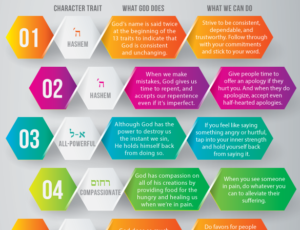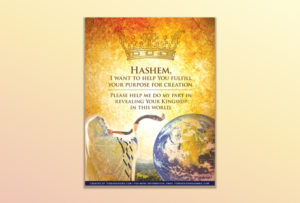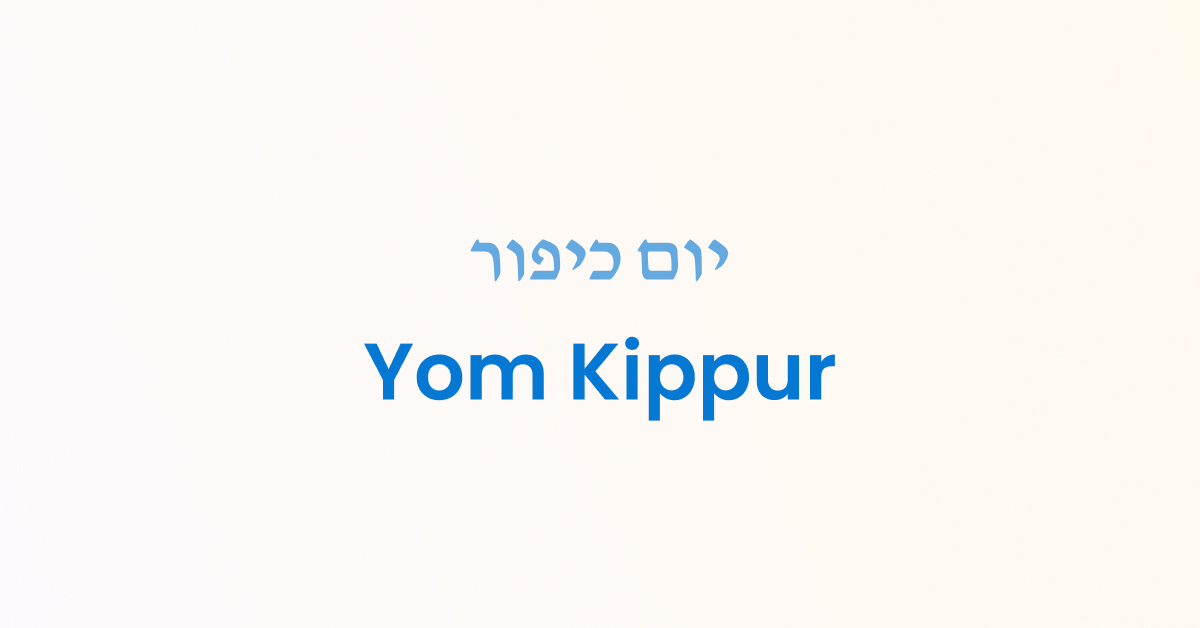Yom Kippur is rapidly approaching. We have hopefully already committed to taking one small step of growth to show Hashem that we’re sincere about improving our ways. We are also trying to emulate Hashem’s 13 Middos of Mercy so that He, too will have mercy on us and forgiven us for our sins.
But if we take a step back and take a hard, honest look at ourselves, many of us feel that we are far, far away from where we need to be.
How many times this year did we really have kavannah in our tefillos? How many times did we really say brachos with the proper focus and intention… let alone articulate the words clearly? How many times have we said biting words in anger to our family or friends… words that we later regret?
When we take a real honest look at where we’re holding, we may feel that it paints a very sorry picture. We are trying to take baby steps in the right direction, but there is only so much we can do. It takes a long, long time to change our habits. When we contemplate how far we are from where we need to be, we may be filled with a deep sense of shame and even despair.
How can we ask Hashem for forgiveness when we don’t even necessarily have a plan for how we are going to improve in all these areas in the future?
Hashem Understands
When we feel ourselves falling into this despair, we need to remember one key thing: Hashem fully understands our limitations, and does not expect us to be perfect. Hashem knows we are human, and human beings take a very long time to change.
Hashem fully understands our limitations, and does not expect us to be perfect.
Indeed, Chazal say “Lo Nitnah Torah LaMalachei Hashareis – Hashem did not give the Torah to angels.”1 Hashem knows we are human, and in fact, Hashem is the One who created us with these imperfections! As we say in the tefillos, “…V’Atah Yodeia yitzram ki heim basar vadam – You, Hashem, know our Yetzer Hara, for we are just flesh and blood.”
In fact, the Mabit writes2 that this is why our teshuva is more accepted during Yom Kippur than any other time of the year. Yom Kippur happens around the time when Hashem originally created the world. When Hashem created the world, He only created us on condition that He would allow us to do teshuva. Hashem realizes that we are human, and He knows we are inevitably going to sin. The only way we can continue to survive is if He allows to do teshuva.
But the reality is that real teshuva consists of both regret for our past sins, and committment to change for the future. And we realize that we can’t possibly change everything overnight. So if we can’t manage to do a full teshuva for all of our sins, how can we possibly earn forgiveness on Yom Kippur? What does Hashem want us to do?
If we can’t possibly change ourselves overnight, how can we possibly earn forgiveness on Yom Kippur?
Realizing How Much We Need Help
The Sifsei Chaim3 explains that the purpose of Rosh Hashana is to awaken us to recognize how much we desperately need Hashem’s mercy on Yom Kippur.
Rosh Hashana is to awaken us to recognize how much we desperately need Hashem’s mercy on Yom Kippur.
When we contemplate Hashem’s awesomeness, realize He is our King, and evaluate our actions compared to what we are supposed to be doing, we realize we are so, so far from where we need to be. This realization awakens within us a desperate desire for Hashem’s help. We want to repair our relationship with Hashem, but we can’t do it all alone – we need Hashem’s help!
The Sifsei Chaim explains that this realization is actually what awakens Hashem’s mercy. Because the simple – yet sincere – desire to come close to Hashem is enough to earn His help in doing so.
The Sifsei Chaim explains that this realization is actually what awakens Hashem’s mercy.
There is a well-known Midrash4 in which Hashem says: “Open for me an opening the size of a needle, and I will enlarge it to be an opening [so large that] wagons can enter.”
What is this “opening” we are supposed to make? The Sifsei Chaim explains that it refers to our recognition of how much we need Hashem’s mercy. We need to open our hearts just a bit, take an honest look at ourselves, and then cry out to Hashem to help us improve.
Yom Kippur is a day that Hashem totally erases our sins and purifies us, as it says “Ki Bayom HaZeh Yechapeir Aleichem LeTaheir Eschem Mikol Chatoseichem…”5 But at the same time, there is a principle that we don’t get anything for free, without working to deserve it first. So how do we earn this forgiveness and purification of Yom Kippur?
The answer is that we earn it by “opening an opening the size of needle” – awakening within ourselves even the tiniest drop of remorse, the tiniest desire to grow, improve, and come closer to Hashem. When Hashem sees our tiny – yet sincere – desire to come close to Him, He will take our hand and lead us on the path toward real complete teshuva.
To further explain this concept, the Maharal6 offers a parable: There was once a king who entrusted a vessel to his servant to watch over, and the vessel completely shattered. The servant was very distressed and didn’t know what to do, because he certainly could not return the vessel to the king in this broken state.
So he went to a wise man and asked what to do. The wise man responded: “There is nothing to do! You cannot give the vessel back to the king in this state! It would be a disgrace to the king!” But the servant would not give up, so he went to one of the king’s close friends and asked what to do. The friend answered: “I know the king well, and the king is an extremely distinguished monarch. It would be a huge disgrace to return the vessel to the king when it’s broken like this!”
Feeling a deep sense of anguish, the servant went to a craftsman and asked if he can fix the vessel. The craftsman said: “Wow, this vessel is severely broken. I might be able to fix a few of the minor cracks, but I can’t fix the whole vessel; it’s broken beyond repair.”
Having no where else to turn, the servant – with tears in his eyes – resigned himself to his fate. “I can’t hide from the king forever. I will have to go to the king himself, and he will do to me whatever he decides to do.”
The servant went to the king, trembling in fear and embarrassment about the broken vessel. The king saw his deep feelings of remorse and declared: “I will make use of this vessel even though it’s broken. Everyone else whom you asked – the wise man, my close friend, and the craftsman – didn’t think I would use it because it would be a disgrace to my honor. But I myself can choose to use it regardless of its broken state.”
On Yom Kippur, we are like the servant with the broken vessel. Before we were born, Hashem entrusted each of us with a neshamah (soul) which we were supposed to keep pure and clean by doing mitzvos and avoiding aveiros.
But to our great dismay, our neshamos have become broken, tainted, and dirtied with sin. We have tried to do teshuva – tried to wipe off the dirt and fix the cracks – but alas, our neshamos sometimes feel so dirty that we don’t even know how to fix them any more. We may even feel that our neshamos are broken beyond repair! When we realize this, we have no where else to turn but to the King himself.
On Yom Kippur, our job is just to show up. We can’t hide from our King forever. We appear before Hashem and say: “Hashem, I’m here. I know my neshama is broken and dirty and I don’t know how to fix myself. But I am here because I still want to have a relationship with You. Please help me fix myself.”7
If we show this tiny yet sincere desire to do teshuva, then Hashem will erase our sins, even if we haven’t yet finished all the steps necessary to do a full teshuva.
The Mabit8 reassures us that doing teshuva is not an all-or-nothing mitzvah like tzitzis (either you’re wearing tzitzis, or you’re not). Rather, every little bit of teshuva helps. Even if we just have some tiny feelings of remorse, without any concrete plan for the future, it still accomplishes something and wipes away our sins.
This is what it means that Hashem is “Maazin Teru’ah – listens to the shofar sounds.” The word Maazin comes from the root Ozen (ear). The Sifsei Chaim writes9 that Maazin means to listen closely, like a person who tilts his ear closely so that he can hear his friend who is whispering. So too, when we hear the shofar blasts and we feel within us tiny “whispers” of teshuva, Hashem “tilts His ear,” so-to-speak, and listens to these tiny “whispers” of teshuva.
Incredibly, the Mabit also writes10 that when Hashem wipes away our sins on Yom Kippur, we are left with a clean slate. If it turns out that we repeat the same sins after Yom Kippur, they are considered new sins – not a continuation from the past! Yom Kippur is our change to begin fresh and new.
So this Yom Kippur, as say Vidui and plead with Hashem to erase our sins, let’s awaken the realization within our hearts of how desperate we are for Hashem’s help, and how desperately we want to repair our relationship with Him. This aspiration alone will be enough to earn Hashem’s mercy and assistance in helping us do teshuva for the future.
Sources: [1] Kiddushin 54a; [2] Beis Elokim: Chapter 15; [3] Sifsei Chaim Moadim Vol. I. pg. 274; [4] Shir HaShirim Rabbah 5:2; [5] Vayikra 16:30; [6] Nesivos Olam: Nesiv HaTeshva Perek 1; [7] This wording is based on Miss Chevi Garfinkel’s shiur entitled Tamim Tihiyeh; [8] Beis Elokim: Shaar HaTeshuva: Perek 12; [9] ibid. pg. 477; [10] Beis Elokim: Chapter 6;
Your Challenge
Think of 3 areas in your life where you need to improve, but it has been very hard for you to change your habits in these areas.
Then – in your own words – ask Hashem to help you do teshuva in each of these areas.





